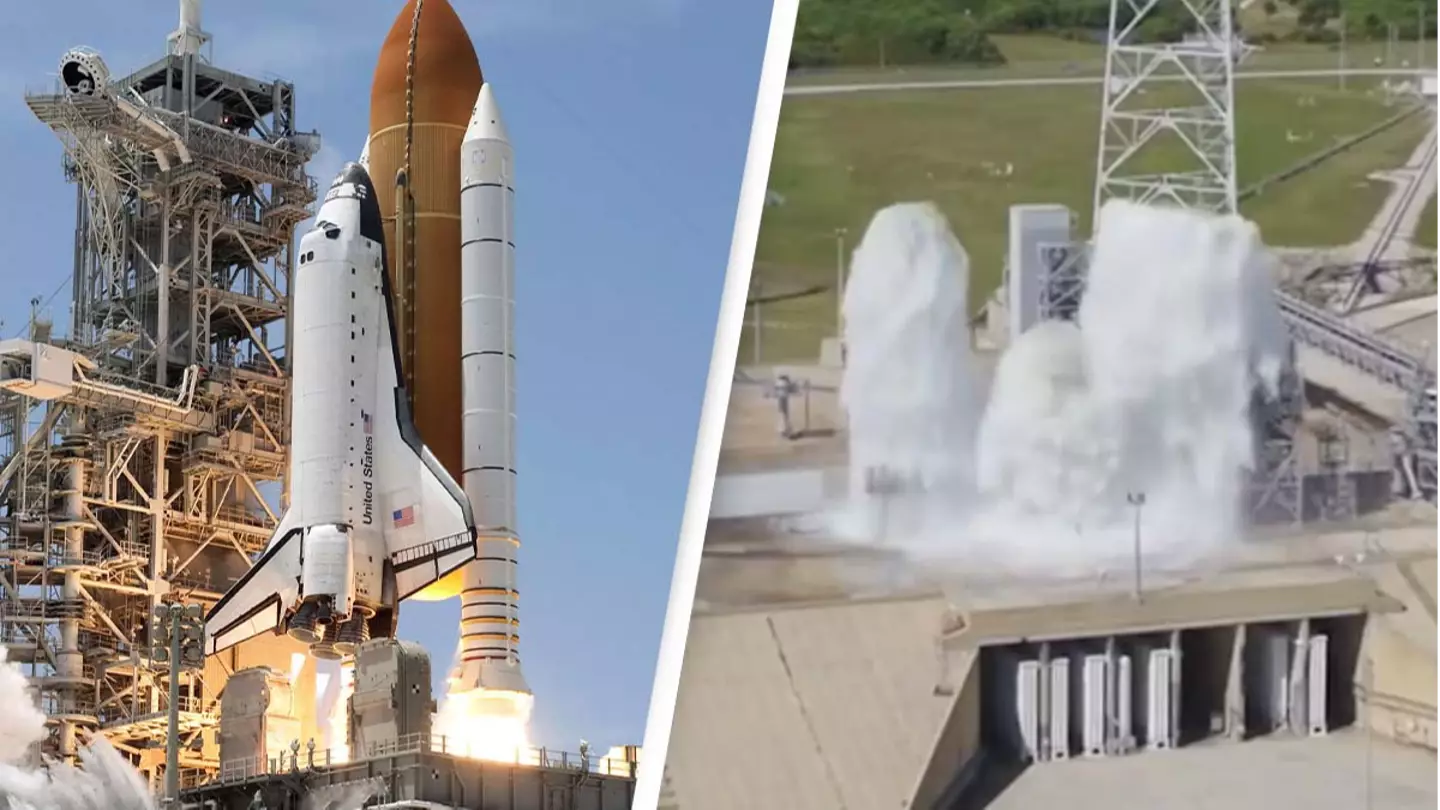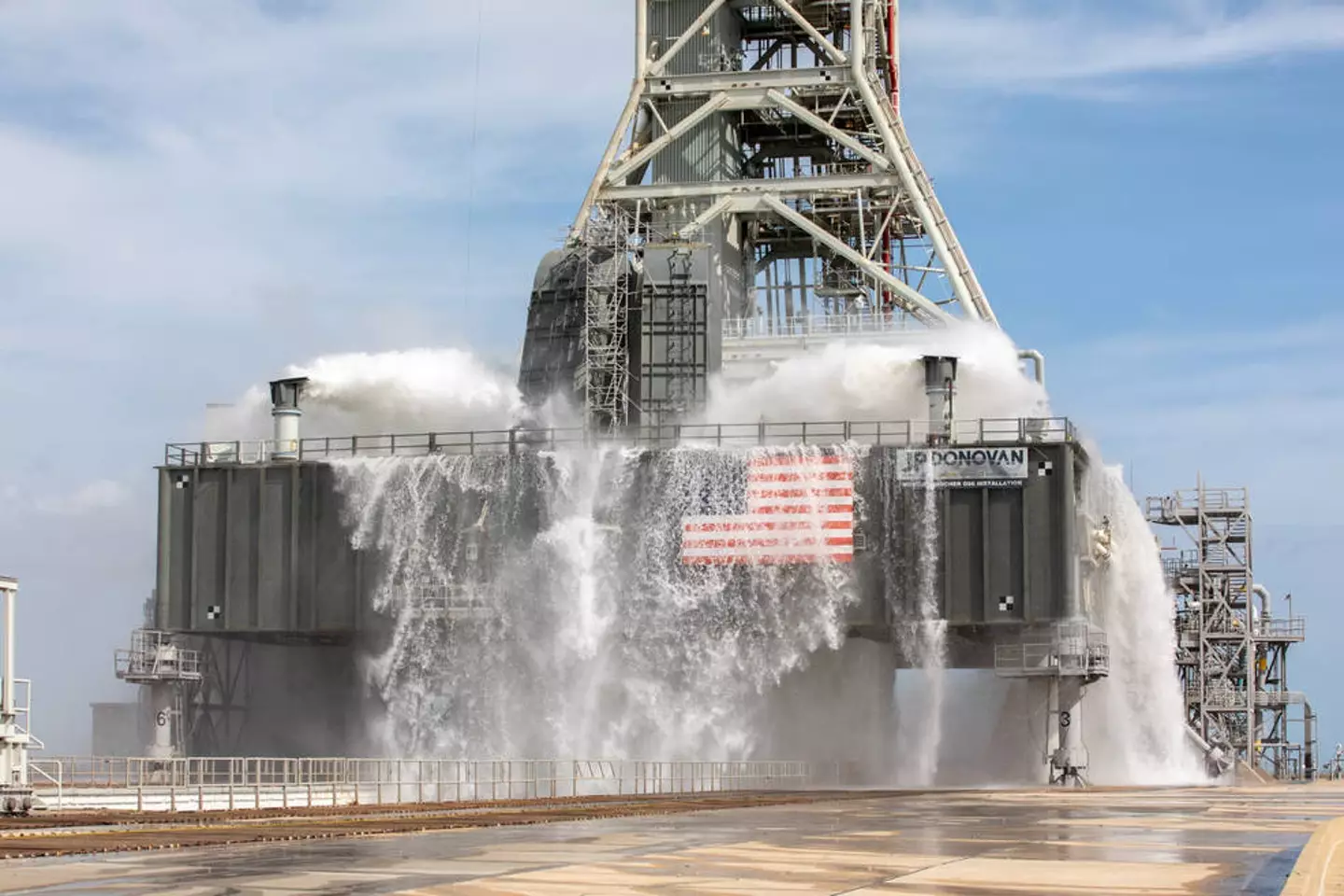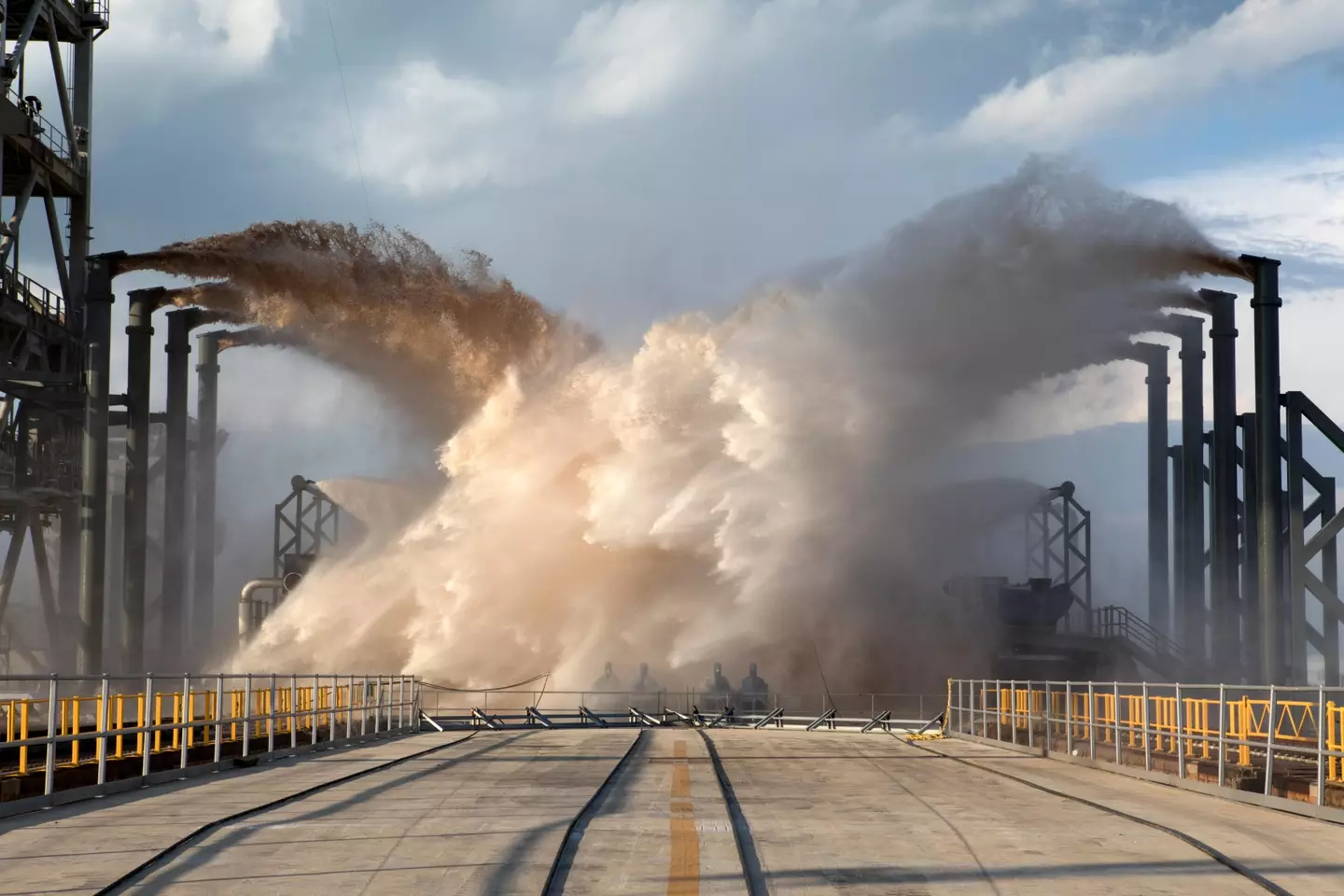
You might not realise it, but NASA has to take some pretty drastic measures in order to stop the noise from rocket launches seriously hurt – or even killing – people who are too close. Here’s a video that explains exactly how they do that.
So, it will come as no surprise to anyone that rockets are loud.
Like seriously loud.
Advert
Like so loud that they could even kill you if you were within a certain range of one as it was taking off.
The huge engines fire into life and generate a whole heap of upward thrust, enough to carry many tonnes of metal and other materials – sometimes humans – through the Earth’s atmosphere and into space.
That means that a whole heap of fuel has to be used and diverted directly downwards in order to get them off the floor.
Where there’s fuel burning, there’s a lot of heat and fire, but there’s also a lot of noise as it all ignites.

For example, when the Saturn V rocket took off during it’s working years between 1967 and 1973, it generated a massive 220 decibels of sound.
To throw that into some sort of vague context, a fighter plane only kicks out around 140 decibels, and they’re really, really loud.
If you happened to be anywhere near that sound, it wouldn’t just burst your eardrums, but would completely obliterate them and potentially even kill you.
Of course, you shouldn’t be near a rocket launch if you can avoid it, but there are occasions where people on board the craft, crew members, and even bits of equipment could be damaged, such is the power of the sound.
That means that NASA has to take steps to stop the sound being quite as loud by suppressing it.
In order to do that, they throw out massive quantities of water across the launch pad during the lift-off, which actually serves a few purposes.
Firstly, it crucially reduces the heat on the launch pad, meaning that the landing structure isn’t destroyed completely by the resultant fireball after the launch, but it also helpfully suppresses the sound waves that could be damaging to either people or equipment.

One system, at the Mid-Atlantic Spaceport in Virginia, can pump through 4,000 gallons of water per second, allowing for 250,000 gallons to be stored in total.
Told you it was a lot of water.
Nowadays, NASA also uses water bags to absorb the powerful soundwaves from the initial lift-off blast, whereas in Russia – where it can famously get quite cold – they deflect the sound using large tunnels that divert the sound safely away from anything – or anyone – who could potentially get damaged by it.
Interesting stuff, eh? Even if it is a bit complicated
To be fair, it quite literally is rocket science.
Topics: US News, International Space Station, NASA, Science, Weird, Technology